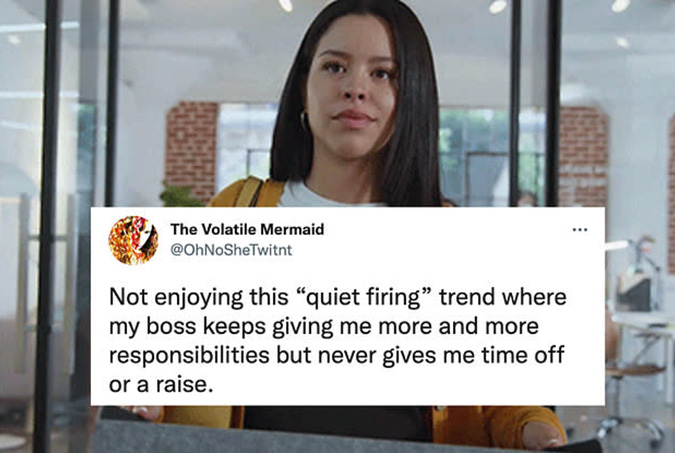In many ways, history is driven by the struggle between those who have vs. those who want. Or need, depending on the prism through which you interpret class struggle. Either way, many of the cultural changes that have led humanity to where it is today were the product of the masses looking for a bit more. Time. Safety. Money. More of something that was scarce for them and that they wanted in greater abundance. A broad generalization of the progress of humankind, but I’ll stand by it.
In addition, these incidents have often been driven by unexpected events outside anyone’s control. Most recently, the global Covid pandemic and subsequent shift in modalities among knowledge workers from office life to remote participation. Having the technology to allow this transition to happen literally overnight in many cases and with minimal if any loss of productivity gave many employees pause as they started to reconsider the need to continue the industrial revolution habit of 8-hour work days and 40-hour weeks that included unpaid commuting times on the top so they could show up in an uninspired office colocated with people, most of whom they never professionally interacted with anyway. After a year or so of no longer having to do all that, many workers, when faced with the prospect of returning to that life, to their great credit, thought to themselves: “fuck that.“
Naturally, the businesses that operated relatively seamlessly through the preceding period, where their workers were given much greater control over their existence, work/life balance, and sanity, were shocked. After all, hadn’t they spent all of this money on real estate, office furniture, and conference rooms to make these workers more productive and indeed happy? In turn, when faced with the prospect of eating all that capital investment, they also thought to themselves: “fuck that.“
One of the manifestations of this employer/employee tug of war is the insinuation that businesses are no longer getting the pound of flesh they pay their workers handsomely for. Rather than focusing on business outcomes (one of their favorite pre-pandemic rallying cries), they told tales of workers stealing from their benevolent employers. The theft was no longer Post-It notes and Sharpies from the supply closet; now, they were stealing time. It’s hard to ensure that you’re getting the 8-hour days and 40-hour weeks you pay so much for when you no longer have a physical panopticon within which to ensure you are getting value for money.
I don’t know how this growing, if not subtle conflict, will eventually play out, but I will say this: “workers of the world unite!” Even if we all do it from the comfort of our own homes.


